But then after I received the book, it seemed like everyone was reviewing it, so I held off for a while. And then I kind of forgot for a while. And then I remembered again, but I couldn’t find my copy. And then I found my copy but I had Something Important To Say and hadn’t figured out how to say it. And then it came to the end of the year and I still hadn’t written about it, so here goes.
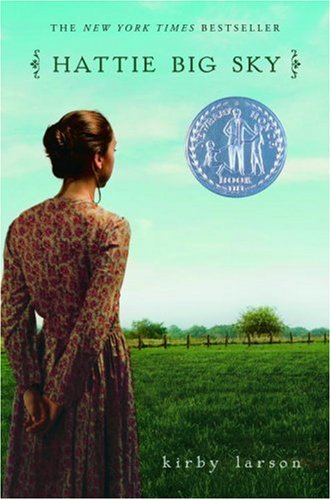 In Hattie Big Sky, Hattie is an orphan who been moved around within her extended family, but never felt wanted. So, when she finds she has inherited land in Montana, the sixteen-year-old girl is ready to face any adversity to make a place of her own. She heads west to prove up the homestead claim, taking some clothes and her cat. It won’t be easy to keep the claim on the land. The house is built, even if it looks more like a shack, but she still needs to fence in the land and produce a crop within a year. In the big land she’s all alone, but finds herself making a new family with the other homesteaders. She faces hard weather and suffers tradgedy. Set during the time of World War I, the book also captures the anti-German sentiment that Hattie sees through connection with her neighbors and new best friends. Kirby Larson has written a wonderful book with a strong female character.
In Hattie Big Sky, Hattie is an orphan who been moved around within her extended family, but never felt wanted. So, when she finds she has inherited land in Montana, the sixteen-year-old girl is ready to face any adversity to make a place of her own. She heads west to prove up the homestead claim, taking some clothes and her cat. It won’t be easy to keep the claim on the land. The house is built, even if it looks more like a shack, but she still needs to fence in the land and produce a crop within a year. In the big land she’s all alone, but finds herself making a new family with the other homesteaders. She faces hard weather and suffers tradgedy. Set during the time of World War I, the book also captures the anti-German sentiment that Hattie sees through connection with her neighbors and new best friends. Kirby Larson has written a wonderful book with a strong female character.But here is my Something Important To Say, that I wish to discuss with my fellow book lovers and blogfriends. I didn’t see the religious aspect of this book mentioned in any of the reviews, yet the book had numerous mentions of God. Here are two selections from early in the book:
Thinking of the Almighty’s earlier guidance, I bowed my head. “Thank you, Lord, for Uncle Chester. May he rest peacefully in your care. Thank you for Perilee, who provided this good supper, and for keeping me safe thus far. Mr. Whiskers thanks you for the mouse. Amen.”Both of these quotes have a nice sense of humor about them and fit with the character. Now, if I had read these passages in an adult book, I would have thought is was Christian fiction. But not only is this not noted as a Christian fiction book, I don’t see that it is noted or discussed as a religious book at all.
To keep myself company, I’d taken to conducting chore-time conversations with God. My self-imposed rule was that each conversation must start on a thankful note. Sometimes that kept the discussion from really getting going.
Let me make it perfectly clear that I like Hattie Big Sky. I think that the mentions of God are in keeping with the story and the time period. I also think that the prayers offer a literary device, giving Hattie a chance to talk to someone since she’s all alone. I’m not saying that the mentions of God are overdone or wrong or inappropriate. I’m just curious about how something that I thought was so noticeable in the book — even integral to the book — was never discussed. And when I’ve thought about it, I would say that there is a lot of churchgoing and talk about God in the Little House books, and in Little Women. Is this something that we accept more in children’s literature? Is it a product of the time periods of the books? Is it something else entirely? I know that a lot of people read and liked this book, and I’d be interested to hear what people think. Spoilers will be allowed in the comments, so don’t read them if you don’t want to know anything more about the book.
As for me, I loved the Little House books growing up and I love Little Women now and I am in complete agreement with all the rave reviews that Hattie Big Sky has received. I wouldn’t really want to see a lot of religious focus for fear of pigeonholing this book. However, if you want a good book for your Christian home-school group, it would be hard to find a better written, more interesting book that also carries a spiritual theme.

















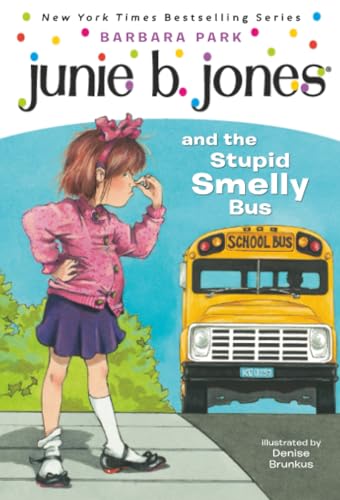



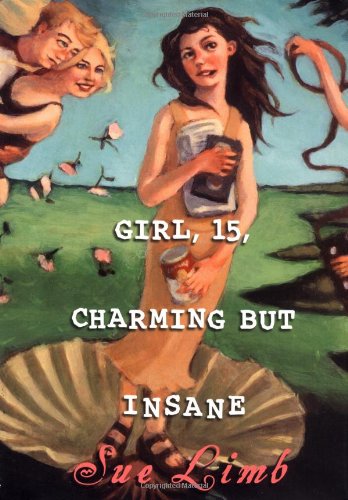
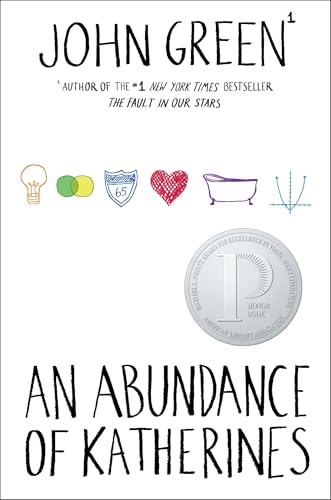
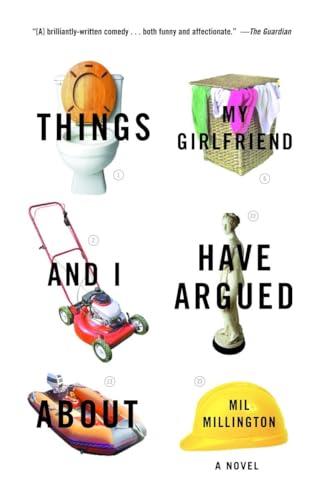
17 comments:
Don't forget that much of "The Color Purple" features Celie's letters to God, since she fears no one else would believe her. Nobody's ever called it a Christian novel. I don't think having a character believe devoutly in Christ or pray to Him regularly makes a book Christian. If I can recall my college literature classes, having a Christian subtext or a character in need of redemption also does not a Christian novel make. Most of Western literature follows the redemptive Christian paradigm, and you can't really start arguing for teaching "The Color Purple" in Sunday school.
A Christian book can probably be usefully defined as one that furthers the goal of spreading the gospel and proselytizing, or at the very least aims to reaffirm the faith of those who already believe. It has a clear agenda of shoring up the reader's Christianity, where the story line, writing quality and even character arc are subsumed under the message, even if it's a great story line as in the Left Behind series. I don't see any public schools seriously calling for it to be taught in a regular classroom, so this is perhaps as good a litmus test as any: does it proselytize?
How about the Narnia Chronicles? I never read them, so maybe someone can say if they fit one model or the other--a literary series with a Christian subtext, or an abjectly Christian story with a literary bent.
Anyhow, putting more than my $0.02 in today. Have a wonderful holiday.
I really liked this book. I listed it under both Juvenile Fiction and Teen Fiction on my Best Books of 2006 list because felt as if the age range of readers for this title is larger than that assumed by YA Fiction. (In other words, the book is totally rated G and can thus be read by voracious readers aged 7 and up who are also devouring Little House, Anne of Green Gables, etc.)
As per the other part of the discussion: I'm not religious, but the small references here and there throughout the book didn't bother me because, as you said, it was keeping with the time period.
Pioneers stalked me last weekend - I read this book, then saw Love Comes Softly on the telly. I liked that film well enough, and they were running a marathon of all the films in the series, so tried some of the sequels. The latter films had many more religious references than the first did, so I did some checking and discovered that they were all based on books by Janette Oke: books I have not read but have shelved plenty times. They are, indeed, Religious Fiction.
Now if you'll excuse me, I have to get back to Doctor Who. :)
-- Little Willow
Look at the top two blog entries. How sweet!
http://www.kirbylarson.com/blog/
LW
I think that you raise an interesting point, MR. I didn't really notice the religious references as anything to mention. I'm actually very sensitive to anything that feels to make like the author is using the book to get across some larger message (whether that's religious views or some other agenda), and I didn't get that impression at all from this book. I think, like Little Willow said, that the religious references in this book don't stand out because they are so appropriate to the historical time period. This is how people were raised at the time. And actually, I think that Kirby raises some nice points about how some of the so called religious people aren't necessarily acting like Christians in their behavior. The book did remind me of the Little House books.
Thanks for starting this discussion. I'll be following with interest, to see what other people have to say about it. I'll be sure to mention it on my blog, too, to drive some further traffic to the discussion. Thanks for letting me know about it!
When I read and reviewed Caroline Cooney's new book A Friend at Midnight, I was reminded of her comments at TxLibrary Assoc. meeting last spring. She said writing about faith or religion in was a taboo in the "mainstream" world of YA and children's lit.
She finally decided after 50 books she was going to write a book with "faith" and God in the plot. She was very pleased that the book was issued by her regular publisher as well as their "Christian" imprint. Depending on the reader, the story works on both levels.
Librarians wrestle with the line between writing and proselytizing all the time. They debate whether or not to include the "Left Behind" books in their collections or include holy books in school libraries.
For some folks (parents I've dealt with) any occurance of the "G" word in a book is a "heavy handed attempt" to proselytize. For others, the lack of Bibles in a library is an obvious attempt to secularize their child and discriminate against Christians. As a librarian, I just want people to have more choices, not less.
I can understand publishers who throw up their hands in frustration with all sides.
I agree with Sherry about attitudes towards religious publishers. Years ago I read a series that I never interpreted as "Christian" and it was only later that I realized that Bethany House was a Christian fiction publisher. I might never have read them if they had been classified with a genre sticker on the spine or in a separate section.
Mother Reader also makes a terrific point about literary series with religious subtexts vs religious books with literary leanings. We all bring our religious (or not) perspectives to our reading. (Especially a certain series, whose book 7 title was just announced.)
This is an interesting discussion, particularly as I'm a non-Christian. Obviously I'm not interested in huge heapin' helpings of Christianity in books, nor do I want my young son to be confused by books that push the Christian party line (so to speak).
And that's how I, personally, distinguish between Christian fiction and fiction that happens to have Christians in it. Is it deliberately pushing the religion, portraying it as the one and only answer to all problems, or just trying to honestly portray someone living their faith?
The Color Purple would fall in the latter category. So would Are You There, God? It's Me, Margaret, which nobody has mentioned yet. It looks like Hattie Big Sky would be in there too. (The Narnia Chronicles, which somebody else mentioned, are in a different category altogether: you have to actually know something about Christian symbolism and allegory to see it in there. If you don't, it's just an engaging fantasy with a big magical lion in it, plus Santa Claus. The only other obvious reference is to Adam and Eve.)
I suppose the reason "Christian fiction" is popular with some people is because they like the affirmation of their faith. Other people who may be Christian are just irritated by it because they're not interested in that sort of thing.
Which is probably why the religion in Hattie Big Sky hasn't been much commented on: If a reviewer isn't interested in religious fiction, they don't see the religious component as anything to remark on. Is it even worth mentioning? Possibly. If, as you say, it would be a fine book for a Christian school class, it might be nice to bring it to their attention. If the reviewer thinks their audience includes people who need that information, anyway.
(Visiting from FuseNumber8, by the way.)
This is on my TBR pile and it's definately gotten bumped up!
I tend to use "Christian fiction" as shorthand for work by publishers such as Bethany. And then am left scrambling for what to call books that may be about Chistians and may be fiction but are not Christian publishers. (For what its worth, same issue for Orthodox Jewish published works; and, I think, LSD/Mormons).
Sarah Darer Litman's Confessions of a Closet Catholic was published by Dutton but has a plot of becoming more frum that is typical of books published by Feldheim, for example.
Camille makes excellent points about how different readers respond and what patrons want. For example, VOYA has been doing an excellent series about religion & teens. I was personally disappointed with their mainstream Christianity (including Catholic) one (http://pdfs.voya.com/VO/YA2/VOYA200606Christianity.pdf) because it included "questioning" titles that to me were not just questioning, but were "I thought about it and it's not for me."
As an author of a new children's book with God in it (Julia's Kitchen), I've given this topic plenty of thought. The difference, I believe, between religious fiction and mainstream fiction is a matter of focus. Is the story about religion or is it about character?
In my novel, a Jewish girl loses her mom and sister in a fire and subsequently comes to question her faith in God. I think the reason my book was published by a mainstream publisher (FSG) is because of its focus on the main character's story arc. It's a universal story of trying to understand why bad things happen to good people and how to cope in the worst situation. It never attempts to sell God or Judaism as the answer. The religious aspects of the story are only there to portray the character honestly and fully.
I haven't had a chance to read Hattie Big Sky yet, but it sounds like that's the case with this book, too. It's about full character portrayal.
I have heard that religion/God is the last taboo in children's literature. But kids think about God and religion, and they form opinions. Leaving that out of character development doesn't make sense to me. I'm glad there are some wonderful publishers willing to cover this ground in a sensitive, non-proselytizing way.
Brenda Ferber
Here's Katherine Paterson's take on faith in fiction for kids today (from the Q&A page page on her site):
Q: In what ways has your religious conviction informed your writing? And would you comment on the presence (or lack ) of religious content, specifically Christian, in recent children's literature (say the last fifteen years or so)?
A: I think it was Lewis who said something like: "The book cannot be what the writer is not." What you are will shape your book whether you want it to or not. I am Christian, so that conviction will pervade the book even when I make no conscious effort to teach or preach. Grace and hope will inform everything I write. You're asking me to comment on fifteen years of 5000 or so books a year. Whew! We live in a Post-Christian society. Therefore, not many of those writers will be Christians or adherents of any of the traditional faiths. Self-consciously Christian (or Jewish or Muslim) writing will be sectarian and tend to propaganda and therefore have very little to say to persons outside that particular faith community. The challenge for those of us who care about our faith and about a hurting world is to tell stories which will carry the words of grace and hope in their bones and sinews and not wear them like fancy dress.
Thanks for these thoughts! I especially like some of the commenters additional input. I think that this book would be great for my voraciously reading 8 year old daughter.
Thanks, Mitali, for bringing up Katherine Paterson -- that's exactly who sprang to mind when I read MR's post. Paterson writes fiction that, to a fellow Christian, clearly portrays messages of hope and grace and stewardship and all that good stuff, but she does so in such a way that it's always in keeping with the characters, and never proselytizing or self-conscious.
I also thought about Hassan in John Green's marvelous AN ABUNDANCE OF KATHERINES: a devout Muslim character whose faith is a huge part of his life and personality. Has anyone suggested that KATHERINES is a pro-Muslim text? No, because it isn't: it's simply another example of excellent character development that happens to include spirituality as a part of that development.
There are books out there with a decidedly evangelical bent: I just read one as part of the Cybils nominating team, for example, and there are a slew of publishers -- Eerdmans, Bethany House, Deseret, etc. -- who focus on these books as their daily bread. (Ha! Church pun.) I don't have a problem with these books either, but there is a difference to me as reader and an editor between a book that uses religion as a means to express or embody character and a book that uses religion to instruct or witness to the reader.
Now I've got HATTIE on my library request list...
Some of Madeleine L'Engle's books fall into this category as well as Paterson's -- books where the characters speak from time to time about religion and/or God, but which are definitely not prosletizing. "A Ring of Endless Light" comes to mind.
Paterson also said in some speech some where (sorry I'm not citing an exact source) that a good author sets out to tell a story, and along the way will, likely, comment upon morality or what it means to be human, etc. etc. This is as opposed to an author who sets out to teach virtue. I would say that's the difference between so-called Christian Fiction and a book like 'Hattie' . . .
I just finished reading Hattie today, and honestly, I don't think I would have noticed the "God" references if I hadn't already known this discussion was out here. It just seemed to be one of many facets to Hattie's character, and as others have said, in keeping with the times.
LW, I HAVE read Jeanette Oke's "Love Comes Softly," because I liked the TV movie and thought the book would be close to that. My issue with that book wasn't the religion per se, but the heavy use of dialect that made it really tough for me to take the characters seriously.
I just interviewed Kirby. I didn't ask her about religion, but I did ask her many other things!
http://slayground.livejournal.com/160972.html
Nancy: Dale Midkiff rocks, and go Miss Heigl!
MR: Here, try this:
Interview with Kirby Larson
kirby larson said:
If you know anything about Presbyterians, you know we always sit in the back row. But Aunt Ivy is an immersion Baptist and she has made it clear I better get my hands in the air on this one.
There is a false impression out there that authors actually know what they're doing when they write a book. I'm here to testify (which is as Baptist as a Presbyterian can get) that that is not true in the case of this particular author.
My goal in telling Hattie's story was to tell it as true as I could. And Hattie does believe in God, partly because she's a product of her time, partly because of her own life experiences, and partly because of my own life experiences. So, because she believes, her faith was part of the story. It was as important to include as was Traft's complexity, Perilee's loyalty and Mattie's chattiness.
In September, a Montana cowboy posted a cranky message on his blog about Hattie being labeled a young adult book. He'd read it and liked it but was afraid the label would keep away other guys like him. I guess I would worry about the book having yet another label, like "Christian fiction;" first of all, because it wouldn't pass muster for Christians like Aunt Ivy and second, it would make it seem like I was trying to deliver a message. And I subscribe to the Sam Goldwyn philosophy: "If I want to send a message, I'll use Western Union."
That being said, I like having a character that believes in God because I think spirituality and faith are important components of many peoples' lives. I know, as a reader, I like to see myself reflected in characters I read about. But I also like meeting characters that shake me up, challenge me, knock me off center.
Aunt Ivy's poking me in the side, reminding me you didn't ask for a sermon. So I'll hush up now. But Hattie says thanks for asking the question. She likes the kind that are hard to answer. And so do I. I think that's why I write.
Post a Comment